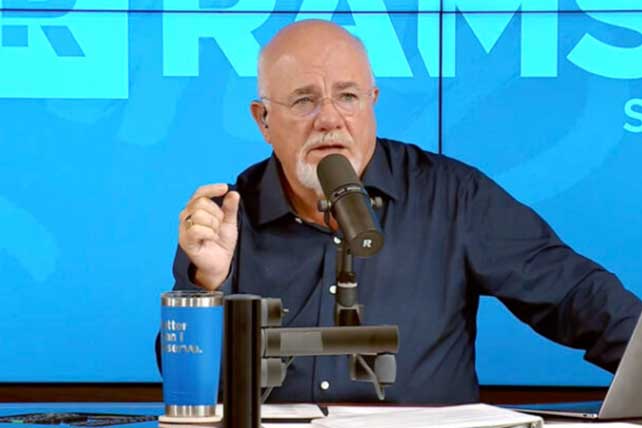(RNS) — A federal appeals court has ruled in favor of a former employee who claimed Ramsey Solutions, the company run by Christian personal finance guru Dave Ramsey, discriminated against him during the COVID-19 pandemic.
Brad Amos, a former video editor at the Franklin, Tennessee-based company, sued Ramsey Solutions in 2021, saying he was fired for not agreeing with Ramsey’s faith-based views about how to respond to the pandemic.
During the pandemic, Dave Ramsey downplayed the risk of COVID-19, referred to those who wear masks as “wusses,” barred employees from working at home and said his company would be guided by faith not fear. Amos’ attorneys alleged that at the Lampo Group — which does business as Ramsey Solutions — wearing a mask or social distancing was seen as “against the will of God,” and employees were required to agree with Ramsey’s beliefs about the pandemic.
Attorneys for Amos also claimed that his faith, including Amos’ belief in the so-called Golden Rule — doing unto others as you would have them do unto you — required him to mask, social distance and comply with other CDC recommendations during the pandemic.
His insistence on doing so, Amos alleged, led to his firing.
“Amos says that his termination was based on his failure to submit to Lampo’s religious practices and his expression of his own religious beliefs with regard to COVID measures. These facts form the basis for Amos’s religious-discrimination claims,” according to a ruling from the U.S. Court of Appeals for the Sixth District.
Amos’ attorney also claimed that Ramsey Solutions had committed fraud by allegedly lying to him about the “cult-like” atmosphere at the company.
In December, a U.S. District Court had dismissed both the discrimination and fraud claims before they went to trial, saying Amos had failed to show he was discriminated against.
In the lower court ruling, U.S. District Court Judge Eli Richardson wrote that “it is not enough that a plaintiff’s sincerely held religious beliefs do not align with the religious beliefs that underlie the employment policy (requirement) that the plaintiff was terminated for non-complying with. Instead, the plaintiff needs to have alleged a religious belief that conflicts with an employment requirement,” Richardson wrote.
On Thursday (Aug. 8), the Sixth Circuit ruled that the district court had erred in dismissing Amos’ discrimination claim. The court ruled that federal law protects employees from discrimination based on “religious non-conformity” — also known as reverse discrimination, or requiring an employee to follow a religious belief or practice.
The Sixth Circuit Court also ruled that a belief in the Golden Rule qualified as a religious claim and was protected from discrimination.
During the appeal, the Equal Employment Opportunity Commission filed a friend of the court brief, urging the appeals court to reverse the lower court ruling — saying Amos had made a plausible claim for religious discrimination.
The EEOC also argued that the term “reverse religious discrimination” was not accurate and said the term “religious non-conformity” was more accurate in cases like the one involving Amos.
“As with all other types of religious-discrimination claims, the employer is accused of discriminating against the employee on the basis of religion,” the EEOC wrote. “Here, however, it is the employer’s religion that is the focus. But that doesn’t make the discrimination ‘reverse.’”
“We’re happy with the result and look forward to the opportunity to continue fighting for our client,” Jonathan Street, an attorney for Amos, told RNS in a statement. The case will now return to the lower district court for trial.
Ramsey Solutions did not respond to a request for comment.
The company’s lawyers, in a brief filed as part of the appeal, said the disagreement between the company and Amos was about how to apply safety protocols. Religion, they argued, had nothing to do with it.
“This lawsuit should never have been filed,” an attorney for Ramsey wrote. “At the heart of it is an aggrieved employee who disagreed with his employer’s approach to the COVID-19 pandemic.”
Ramsey’s attorneys also argued that Amos had failed to make his religious discrimination claims in a clear and timely manner and so those claims were invalid. “Because Plaintiff-Appellant failed to plead reverse religious discrimination, it is not properly before the Court on appeal,” Ramsey’s attorney argued.

